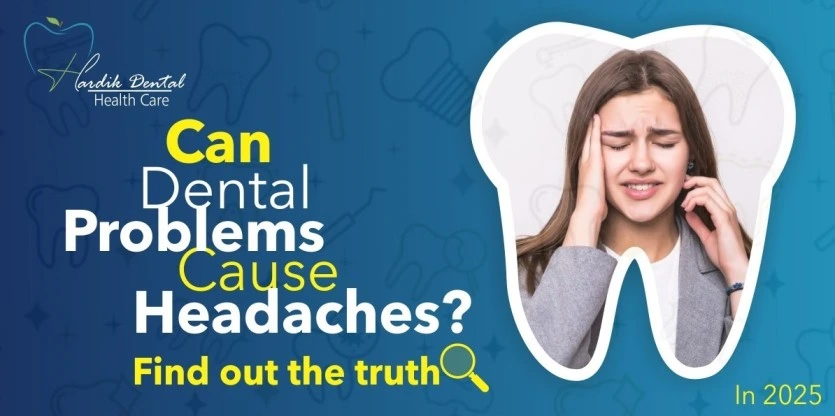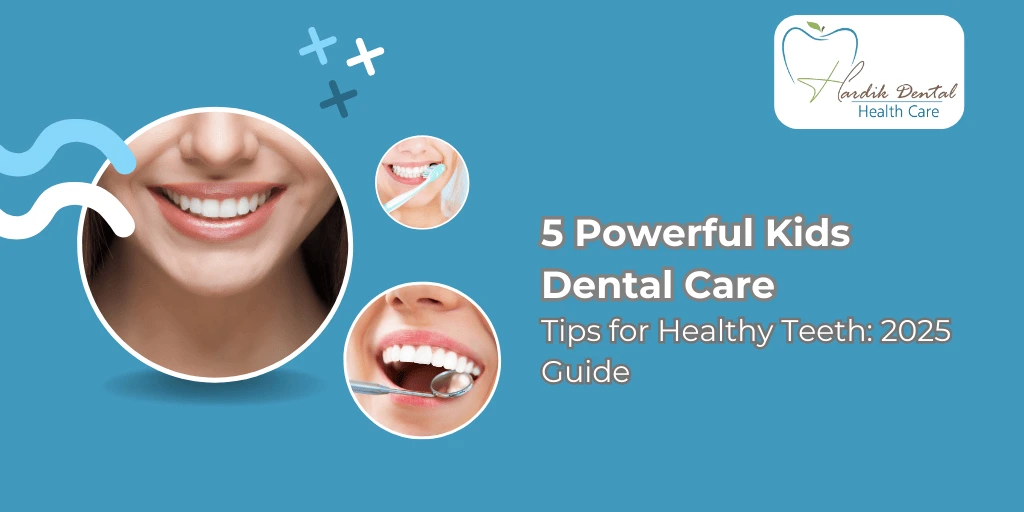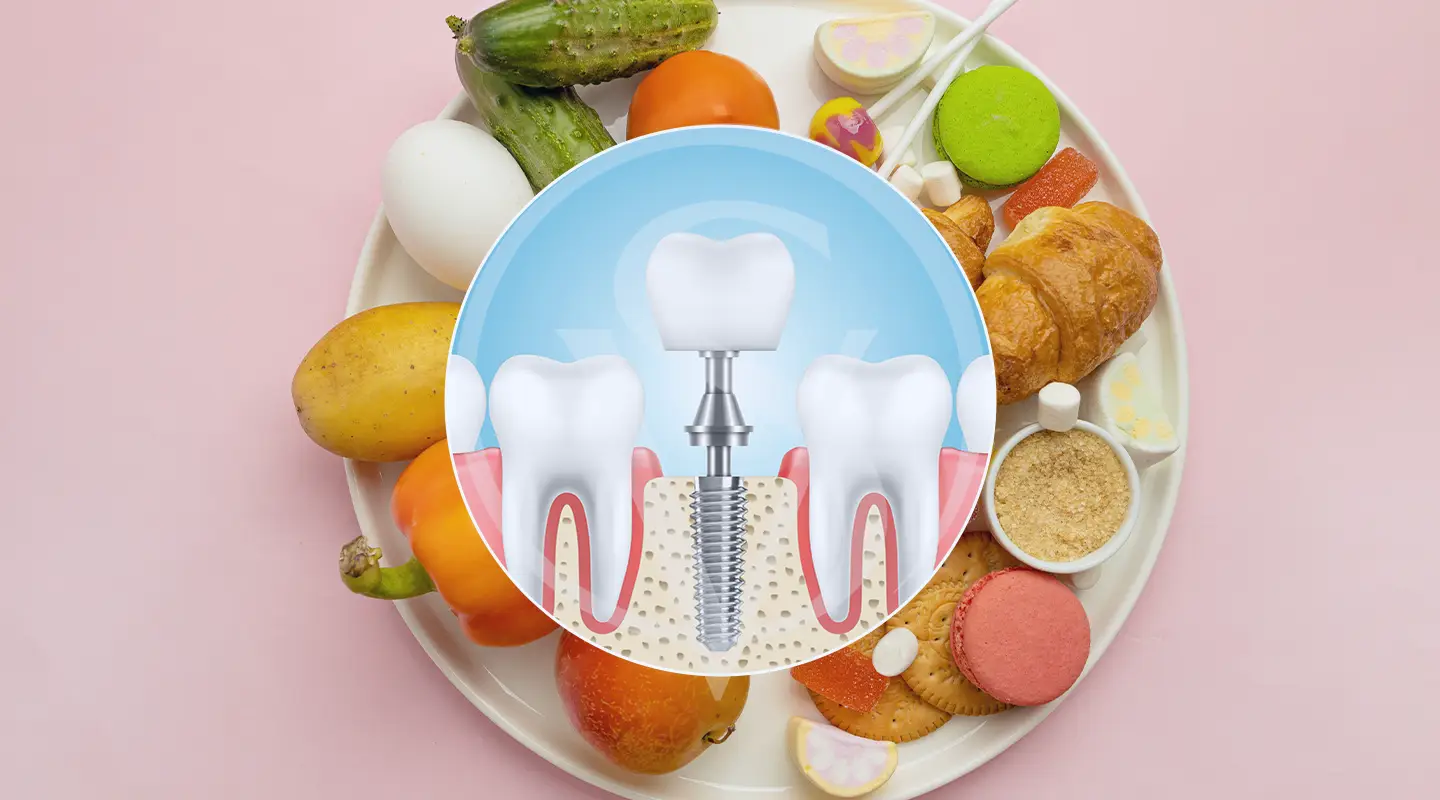Global Headache Problem?
Teeth pain headache are a serious problem that affects the health of millions of people worldwide, and a great deal of discomfort might be connected to them. The fact is, headaches is not age-specific. To be more precise, 50% of the people in the world have had a headache at least once, and children are no exception. In adults, the cases of headaches men are in 33% of cases and women are in 25% of cases.
Can dental problems cause headaches?
This is a question that many people might not immediately think about: Can dental problems cause headaches? yet dental issues can indeed contribute to headache symptoms. Headache is a common problem with people, but at the same time, some people can have it in various degrees of severity and types. As a result, human biology could not be identical in the same instance and this process is created by the need for individual freedom and responsibilities in the management of the environment.
Types of Headaches?
Headaches are usually grouped under different kinds, but the tension headache is by far the most widespread. This occurs from muscle hardness and bones that could be pressed around the temple area. teeth pain and headache, particularly of the tension type, are characterized by a pulsating sensation arising from the temples, paired by widespread discomfort throughout the head.
Common Causes of Headaches?
The most prevalent causes of headaches include factors such as stress, which can lead to tension; sleep deprivation that disrupts normal rest patterns, and insufficient water intake, which can result in dehydration. The triggers are mostly common and there were many people worldwide who were affected. Still, a substantial factor that is not immediately associated with headaches but to many individuals like dental issues is the major cause of headaches, and it is often neglected.
Can dental problems cause headaches?
Dental problems can bring on headaches. Diseases such as cavities, swelling, wrong position of jaws, and grinding teeth of individuals are the culprits of applying pressure on the facial and oral bones, resulting in the worsening of migraines or causes for headaches. The emphasis of such studies is that over 50% of the people with diagnosed migraines have a dental condition that causes pain.
Over 50% of individuals with migraines may have an underlying dental issue contributing to their pain, highlighting the critical link between oral health and headache symptoms.
Investigating the Link Between Dental Issues and Headaches!
The relationship between dental problems and headaches is an issue that has opened new avenues in the dental world. Discovering the pathways through which dental problems can be a source of headaches and examining the ways of treatment is a core process. The purpose of the article is to outline the link between dental problems and headaches. Solutions and causes will be discussed as well. The first aim of this paper is to investigate the nature of the interplay between the causes and the possible solutions to them.

Can Tooth Problems Give You Headaches?
It is often believed that the pain caused by the teeth stays only in the mouth. On the other hand, teeth-related problems are usually a cause of pain in other regions of the body and not the mouth alone. The pain of tooth decay, abscesses, or infections may extend to the other areas of the head; consequently, the sufferer could also have a headache.
This raises a crucial question: Can Tooth Problems Give You Headaches? The answer is yes. The reason behind this is the intricate nerve pathways that link the teeth with the brain. An inflamed nerve transmits sensation signals to the face, including teeth and jaw, and can lead to severe headaches. Dental issues such as tooth decay and cavities can generate pain signals Through the nerve fibers, resulting in headaches or migraines.
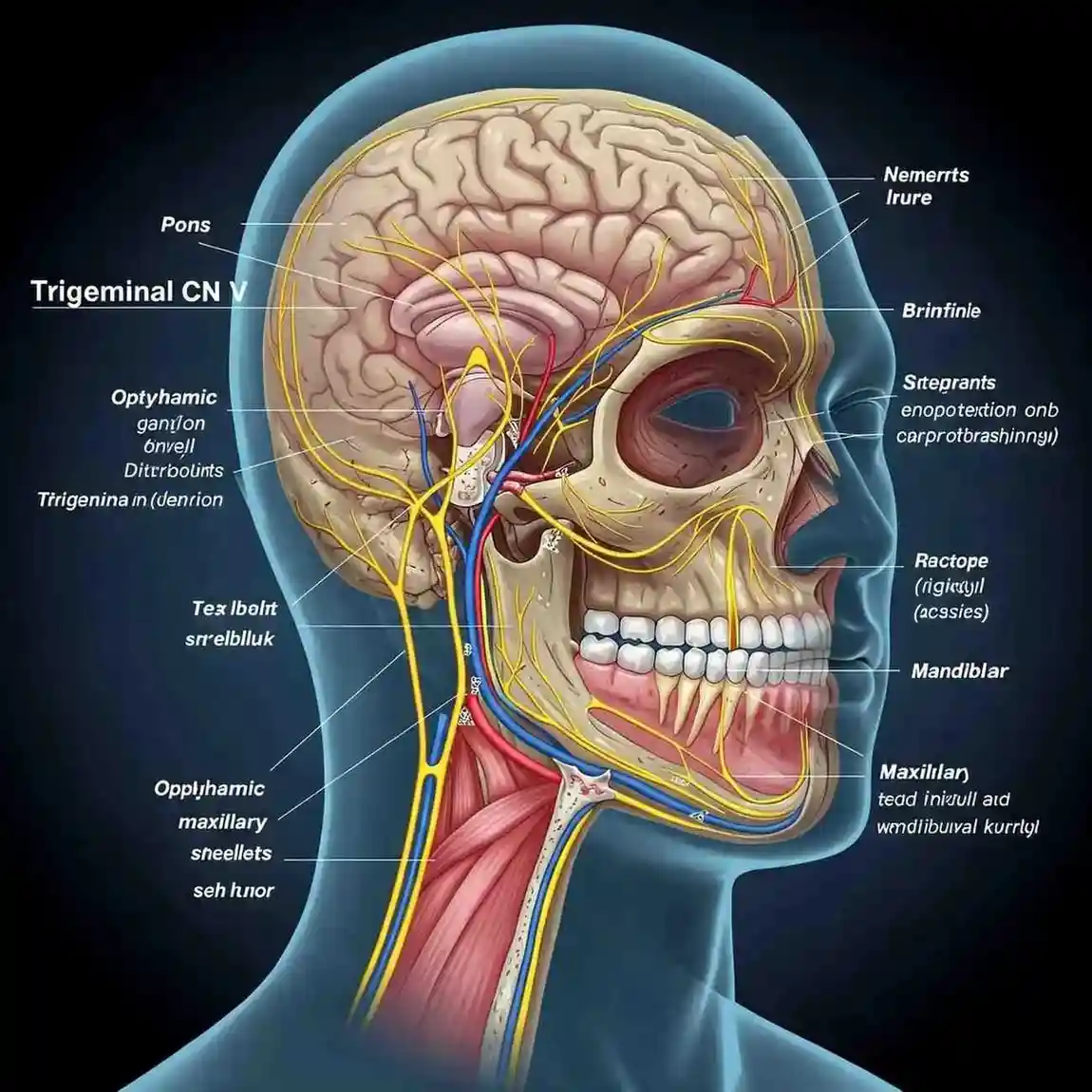
Can Dental Problems Cause Migraines?
Migraines are actually one of the most severe types of headaches that people may suffer from. They usually come along with several other symptoms, such as a feeling of uneasiness, a tendency to vomit, and excessive sensitivity to even the flash of a small light. Although the exact reasons for migraines are still not clear, some research evidence has found that dental problems can cause migraines, which are one of the causes of migraines in some people.
The relationship between migraine and dental problems can be explained through the trigeminal nerve, which is the pain carrier and takes the signals to the brain when the teeth, gums, and jaw are in pain. In such cases as tooth infections, cavities, or broken fillings, the nerve might be irritated and the pain level may even be such that it can cause migraine.
Do you think can dental problems cause migraines? Definitely. "Let’s look at an example. People who grind their teeth or have a misaligned jaw may get more migraines." The strain on the jaw muscles due to bruxism can lead to tension headaches, which, in the long run, may escalate into migraines.
Can Tooth Problems Cause Head Pain?
You may be thinking how can tooth problems cause head pain? So, the answer is that it can. A headache is a pain that we feel in our head. Toothaches, gum disease, and other dental problems can trigger this condition, creating a pain that is perceived headache rather than the toothache. This is nursing the phenomenon of referred pain, where the pain felt in one place of the body is mistaken for another.
The trigeminal nerve, responsible for registering the teeth and jaw pain signals in the brain, can also cause head pain. Let’s take an example: if a tooth infection or some teeth being out of place can put pressure on the jaw and the facial muscles. Tension following it may spread in such a way, from the face through the forehead, to the temples, thus triggering head pain. Tension headaches are a common misdiagnosis since many times, the actual cause of the pain is a dental issue. Can tooth problems cause head pain? Yes, they can. It doesn't matter if a tooth was misaligned, had an abscess, or was just ignored since poor dental conditions can hurt any part of the head, particularly in the temples, forehead, and behind the eyes.
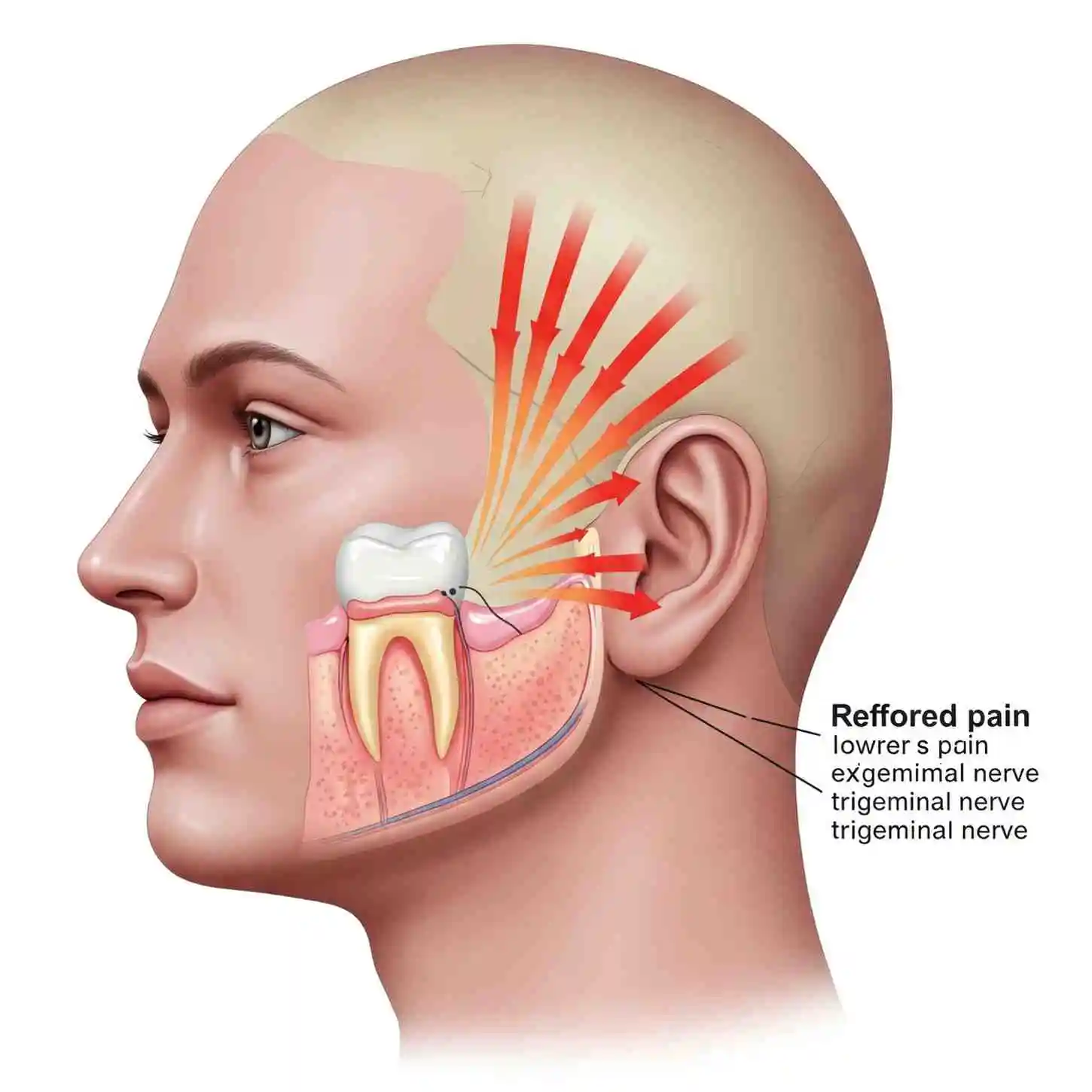
The Role of Bruxism in Headaches
Teeth pain and headache are the major dental causes of this condition. Some people grind and tightly clench their jaw muscles because they are not aware of the reason, which is called bruxism. Also, it is an issue that may occur both in the case of the morning shower and during the wake-up period of the person because of the stress and anxiety the person has. The deep clenching of your teeth pushes the jaw muscles to their breaking point, causing toothaches and tightness in the teeth which progress to some serious headaches.
Bruxism generates pressure, and this also leads to one of the types of tension headaches, i.e. muscle tension headaches that are located in the temples and the forehead. Teeth gnashing that goes on for a long period of time may induce continuous toothache as well as the discomfort that is generally connected with it. Besides, teeth grinding can cause serious damage to the teeth which, in turn, results in more severe issues. Moreover, continuous stress exerted on muscles in the jaws can exacerbate the situations related to TMJ, which in turn can cause headache pain to increase.
Bruxism and headaches are closely connected, so not treating treated properly might be a cause of serious complications like migraines. Wearing a mouthguard is a usual way to cure a person suffering from bruxism, as the teeth are saved from pressure, and thus it is becoming easier for a person to relax the jaw muscles, therefore reducing the teeth pain and headache.

TMJ Disorders and Their Impact on Headaches
Temporomandibular joint (TMJ) disorders are another dental problem causing headaches. The TMJ lets the jawbone move as needed for chewing, speaking, and yawning by linking it to the skull. Pain radiating from the TMJ that becomes misplaced or inflammatory can affect the jaw, neck, and head.
Most often, the disorders of TMJ are associated with tension headaches, which are headaches that are triggered by the muscle tension in the head and neck. The tightness from TMJ may even spread throughout the face and give rise to pain in the temples, behind the eyes, and also in the jaw. There are times when these headaches are misinterpreted as migraines because the actual cause of the pain is the misalignment or dysfunction of the TMJ.
Can dental problems cause migraines through TMJ disorders? Yes, TMJ trouble can make one have a headaches, or it can make migraines even worse. The tension in the jaw muscles caused by TMJ problems can bring either tension headaches or migraine headaches.
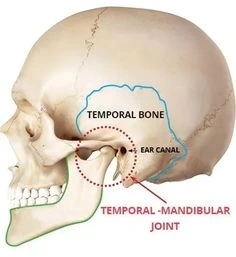
Referred Pain: When Tooth Pain Causes Headaches
Referred pain is likewise a crucial matter to be taken into account when referring to how dental problems can cause headaches. It is when you experience pain coming from one part of the body, yet you feel it in another area altogether. Furthermore, the trigeminal nerve, which carries sensations from the face, teeth, and jaw, is the one that carries the pain caused by a headache to the head
Tooth pain that is brought on by a cavity, infection, or misalignment is often the cause of the referred pain that the person feels in the temples, forehead, or even behind the eyes. Abscessed tooth pain, for instance, might feel like a tension headache. In the same way, the displacement of teeth can be the trigger of the pain radiating from the head to the other parts of it, hence the development of a headache which, in turn, is not so precisely identified due to other reasons.
Can tooth problems cause head pain through referred pain? Yes, tooth pain that appears to be in a different body part than the offending tooth can cause headaches and migraines. Not separating dental health from recurring headaches is the reason why dental health must be closely evaluated.

Symptoms of Dental Issues That Cause Headaches
Are your headaches related to problems with your mouth and teeth? What should be the symptoms that might tell you it was a dental health concern? Here are a few signs that your headaches may be linked to dental issues:
- Jaw pain or tenderness: If your jaw starts to hurt while you are eating or talking it would no doubt indicate a problem with your teeth, bite, or TMJ.
- Tooth pain: In cases when you feel pain or discomfort when eating or you cannot tolerate hot or cold temperatures (reactive dentin) then probably the teeth could be the source of the headache.
- Difficulty opening or closing the mouth: In some cases, TMJ disorders are found to be the reason. These are changes in the joint structure with time and can cause decay and disintegration of the bone.
- Gum tenderness or swelling: When the gums have an oral infection or when there is an abscess inside them, there can be a lot of pain that can spread up to the head.
- Clicking or popping in the jaw: This is often a sign of TMJ disorders, which can cause headaches.
- Head pain: Pain in the temples, forehead, or behind the eyes can be a sign that your dental health is contributing to your headaches.
If you experience any of these symptoms along with chronic headaches, it's a good idea to consult with a dentist to evaluate your dental health.
Treatment Options for Headaches Caused by Dental Problems
Dentist Dr. Robert Shemales says that if patients come to him with headaches caused by dental issues, there are many treatments they can use to get rid of the pain and to avoid such headaches in the future. They truly focus on the source of the problem, which can be an infected tooth, bruxism, or the TMJ of the patient. In addition to pain in the teeth, the one that is located at the ear, often one of the sides is manifested with headache over the ear and one wonders whether the trigger is in the ear or the jaw joint that dermatologists can help with, often simply through relaxation techniques for the jaw and facial muscles
- Dental Restorations: For caries and tooth trauma-related headaches treatment might be prescribed, for example, fillings, crowns, or root canals. These fillings, crowns or root canals, etc., are necessary to remove the pain source if cavities or tooth damage are the causes of your headaches.
- Mouthguards for Bruxism: A custom mouthguard used during sleep can be a good remedy for bruxism through protecting the teeth and reducing the strain on the jaw, which leads to the pains of the head.
- Orthodontic Treatments: To solve malocclusion, use of braces or aligners could be beneficial and therefore can bring a favorable change of the bite and the jaw can be relieved which reduces the headache frequency. headache frequency.
- TMJ Therapy: Physical therapy, medications, and even oral appliances can be recommended by a physician if headaches are the result of TMJ dysfunction as a first-line therapy. Also, he may advise you to use other treatments such as engaging in physical therapies, taking prescribed medication, or even wearing an oral appliance.
- Pain Relief Medication: Your dental problems can be addressed through the use of non-prescription drugs like ibuprofen or aspirin, which are very good for the headaches caused by dental pain, but it is important to address the underlying causes to prevent future headaches.
At Hardik Dental Clinic's Advanced Oral Care, we offer comprehensive treatments to address these issues, helping you find relief from headaches caused by dental problems.
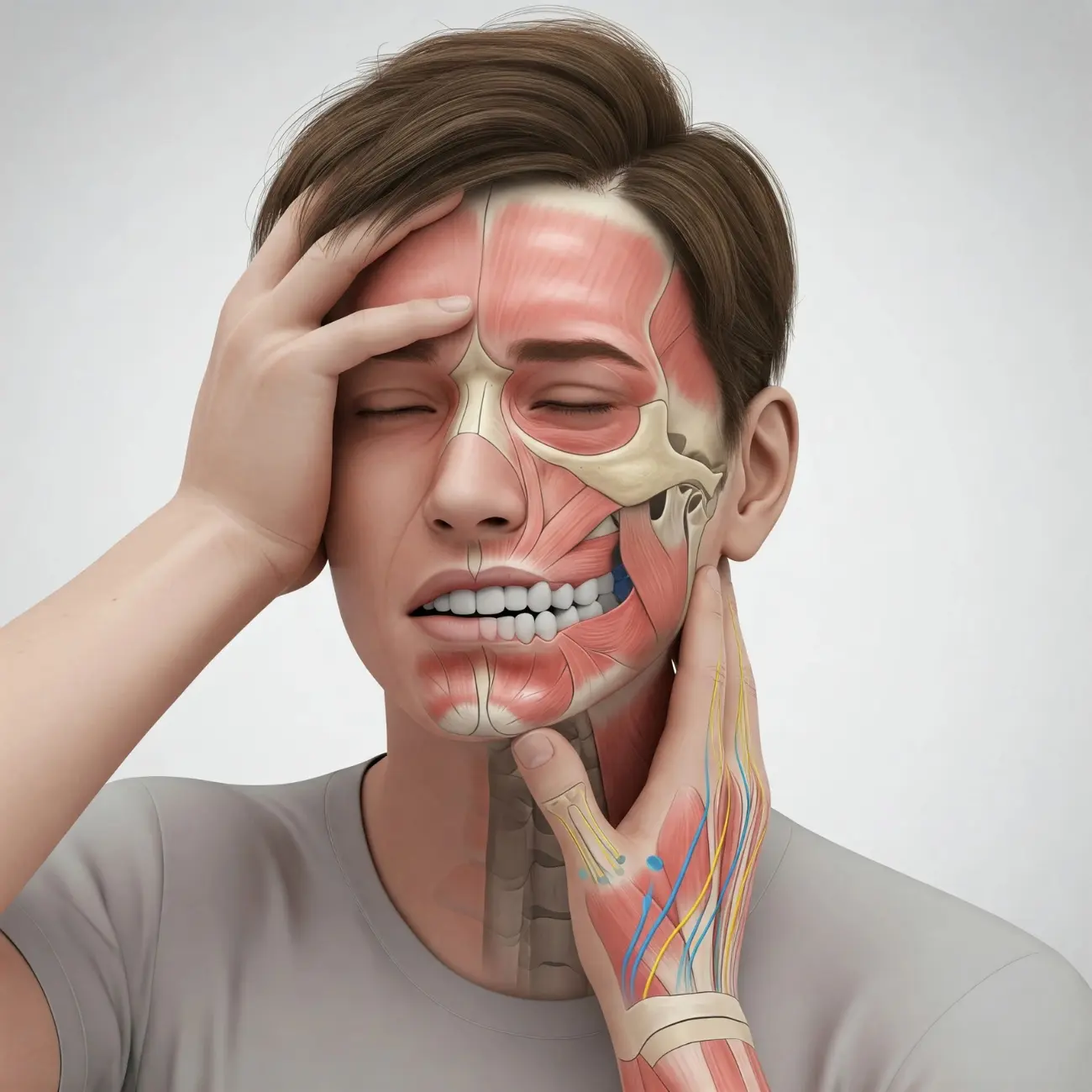
Conclusion: Can Dental Problems Cause Headaches?
On the whole, the answer to can dental problems cause headaches is beyond question. Tooth decay, gum disease, bruxism, and TMJ disorders are just some of the dental issues that can contribute to headaches, for instance, tension headaches and migraines. Thanks to recognizing the connection between oral health and headache pain, you will be able to take the first steps to your dental problems and get rid of your headaches.
Regular dental check-ups can be a game-changer in preventing headaches caused by dental issues, ensuring both your oral health and overall well-being are protected.
Seeing your dentist often and following proper oral hygiene procedures, as well as getting help early on, are three steps that can help you avoid dental problems that might trigger headaches. Just in case if you think your teeth and gum health are related to your headaches, it would be better to see your doctor. There are various ways to deal with the condition, and you should choose the most effective one that will relieve the pain and make your teeth and body healthy.


